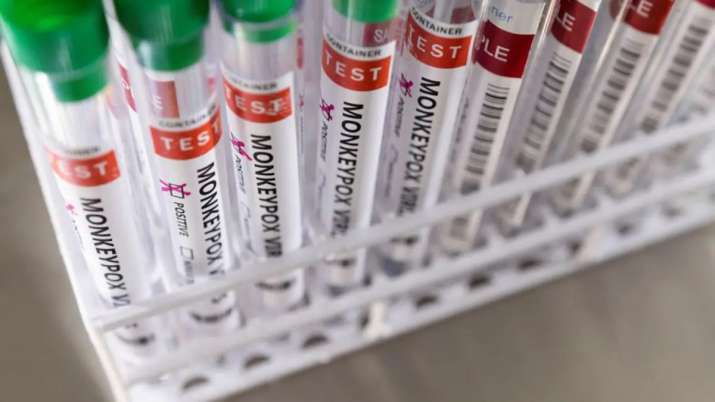WHO Is Changing The Name Of Monkeypox; Why?

New Delhi: World Health Organisation (WHO) Director-General Tedros Adhanom Ghebreyesus on Tuesday said that the global outbreak of monkeypox is “unusual and concerning”. The health body will form an emergency committee next week to assess the rising cases being reported in 39 countries.
“I have decided to convene the Emergency Committee under the International Health Regulations on Thursday next week, to assess whether this outbreak represents a public health emergency of international concern,” he said.
Changing the name
Amid calls from scientists for a “non-discriminatory and non-stigmatizing” name, WHO is also looking into changing its name.
Ghebreyesus said that they are working on the matter. “WHO is also working with partners and experts from around the world on changing the name of #monkeypox virus, its clades, and the disease it causes. We will make announcements about the new names as soon as possible,” he said.
A group of 30 scientists from Africa and around the world called for changing the name. In a paper, the group pointed out the continuous use of photos of African patients to depict pox lesions in the mainstream media.
“WHO is also working with partners and experts from around the world on changing the name of #monkeypox virus, its clades and the disease it causes. We will make announcements about the new names as soon as possible”-@DrTedros
— World Health Organization (WHO) (@WHO) June 14, 2022
“Although the origin of the new global outbreak is still unknown, there is growing evidence that the most likely scenario is that cross-continent, cryptic human transmission has been ongoing for longer than previously thought. However, there is an increasing narrative in the media and among many scientists that are trying to link the present global outbreak to Africa or West Africa, or Nigeria,” scientists said.
The WHO lists the virus under two distinct strains: the Central African (Congo Basin) clade and the West African clade.
What is monkeypox?
It is a rare infection that is mainly spread by wild animals like rodents and primates in parts of west or central Africa, according to the United Kingdom’s National Health Service.
The disease causes a mild illness and can result in symptoms such as high temperature, headache, backache and a chickenpox-like rash. The infection can spread if a person touches monkeypox skin blisters or uses clothing, bed sheets or towels of those suffering from the disease.
More than 1,600 confirmed and almost 1,500 suspected cases of monkeypox have been reported to WHO from 39 countries. Of these, monkeypox has been detected in seven countries for years, and the remaining 32 are newly-affected countries.
“So far this year, 72 deaths have been reported from previously-affected countries,” Tedros said. “No deaths have been reported so far from the newly-affected countries.”
However, WHO said it is verifying reports of a monkeypox-related death from Brazil.
The global health body’s goal is to help countries to contain transmission of the virus and stop the outbreak with surveillance, contact-tracing and isolation of infected patients, Tedros said.
On Tuesday, the health agency published interim guidelines on the use of smallpox vaccines for monkeypox. However, it clarified that it does not recommend mass vaccination against monkeypox.
“While smallpox vaccines are expected to provide some protection against monkeypox, there is limited clinical data, and limited supply,” Tedros said. “Any decision about whether to use vaccines should be made jointly by individuals who may be at risk and their healthcare provider, based on an assessment of risks and benefits, on a case-by-case basis.”

Comments are closed.